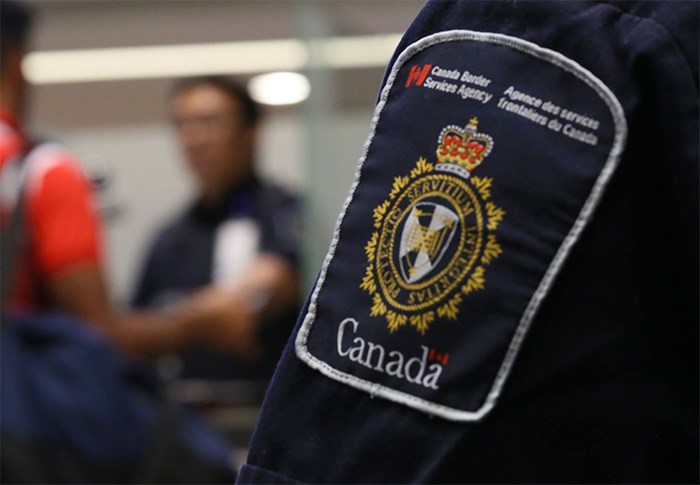A leading human rights group is slamming the Canada Border Services Agency after a person detained in a federal holding facility in Surrey, B.C., died on Christmas Day.
First reported in a CBSA press release on Dec. 28, the agency provided no details about the person's identity and few explanations into how they died.
"It's shameful," said Samer Muscati, Human Rights Watch Canada's associate director for disability rights. "This person is nameless. Faceless.
"If there's no scrutiny, no transparency, how can we hold them to account?"
The agency said next of kin have been notified and that it won't be releasing the person's identity because of "privacy considerations," according to a statement released by the CBSA Wednesday.
The agency said the detained individual was found unresponsive and that staff at the detention centre tried to resuscitate the person. Those efforts failed, and the individual was pronounced dead by first responders, said the statement.
Surrey RCMP and the BC Coroners Service are currently investigating the circumstances of the death, according to the statement. The border agency also said it is conducting its review into the circumstances that led to the person's death.
The CBSA said it would not release additional information while the investigation is ongoing. The agency did not respond to a Glacier Media request for more information about the individual and how they died.
This is at least the second death of a person in an immigration detention facility in Canada this year. The first happened in Quebec in January, according to rights groups.
Muscati says the latest death means at least 17 people have died while in CBSA detention since 2000, though that number could be much higher.
Nearly 73,000 people have been detained in provincial and federal holding facilities over the last decade, according to CBSA data. Over 14,000 — just under 20 per cent — have been detained in B.C.
In a report he co-authored last year, Muscati called on Canada's provinces to end their contracts with the CBSA that allowed the federal border agency to use provincial prisons to detain immigration detainees.
In July, B.C. Public Safety Minister Mike Farnworth said his government would heed that call, ending the arrangement between BC Corrections and the CBSA after a 12-month notice period required under its current contract.
At the time, Farnworth said aspects of the arrangement didn't align with the government's commitment to upholding human rights standards or its dedication to pursuing social justice and equity for everyone.
As the first province to make the decision, secretary-general of Amnesty International Canada Ketty Nivyabandi said the move was a "true human rights victory."
But CBSA still maintains three federal holding facilities, including the one in Surrey. Muscati says Human Rights Watch has documented several rights violations over the years.
"These centres are like medium security prisons," he said, noting it costs the CBSA $400 a night to house detainees in some cases. "The irony is that Canada is a model in some ways."
Muscati pointed to a wave of releases during the pandemic. Many asylum seekers were placed with community-based organizations in both Ontario and B.C. that provided secure housing, translation services and counselling — services that help immigrants settle into the community while at the same time not posing a flight risk, Muscati said.
In the first year of the COVID-19 pandemic, detentions in B.C. fell to a fifth of the previous year's total of 1,470. But in 2021-2022, detentions more than doubled to 680 people. That means, relative to its population, B.C. detained more people than any other province over the past year.
"We saw a huge reduction in immigration detention," Muscati said. "The sky didn't fall. They were still able to effect deportations. The system still functioned."
"We've seen two deaths this year. We can't sit around and wait for others to die."
With files from the Canadian Press




